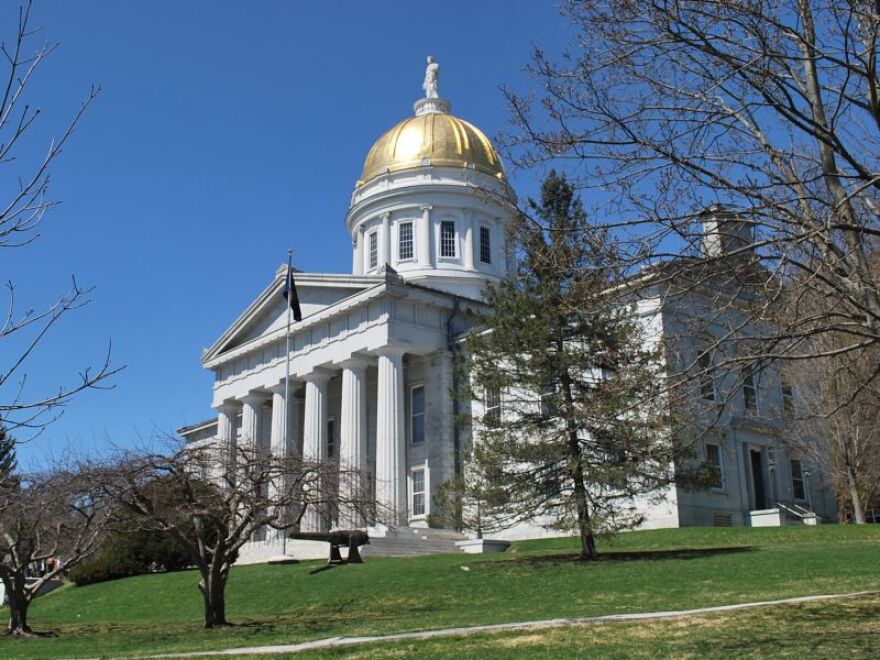These are uncertain times for many school boards across the state as they try to negotiate new labor contracts with local teachers unions.These negotiations come at a time when Gov. Phil Scott and Democratic leaders at the Statehouse are battling over a plan to impose a uniform health care policy for all teachers in Vermont. And that leaves many local districts wondering: Should they continue to negotiate, or wait until they see the outcome of a bruising political fight that's taking place at the Statehouse?
Because of provisions in the Affordable Care Act, all school districts in the state are renegotiating their health care contracts at the same time.
Currently, 13 school boards have reached an agreement with their teachers, 25 have declared an impasse and 22 are still actively negotiating their contract.
Scott says he's confident that he'll be able to reach an agreement with Democratic lawmakers on this issue.
His message to those 22 school boards who are still in labor talks is: Don't settle your contract until after the special veto session in several weeks.
"I believe that we can get to a solution with this,” said Scott. “So I would offer that you might want to hold off a bit and see how the negotiations work out."
"I would offer that [school boards] might want to hold off a bit and see how the negotiations work out." — Gov. Phil Scott
Scott wants all teachers to pay the same percentage of their health care premiums. Currently, this figure varies quite a bit. Some teachers pay 21 percent of their premiums; some pay as little as 5 percent. The statewide average is 15 percent.
Scott argues that having all teachers pay 20 percent of their premium would yield a savings of $13 million in the current calendar year, and $26 million on an annual basis in the future.
The Vermont NEA, the state's teachers union, strongly opposes the governor's plan because they say it interferes with the local collective bargaining process.
But the governor says his approach is needed because a review of the school districts that have settled their contacts shows that these agreements don’t reflect the kind of health care savings that he's seeking.
"Some aren't making any contribution in some of those agreements, and some are paying 20 percent, so it's all over the board," said Scott.
"It's still unknown what some of the outcomes might be from the legislative activity." — White River Valley Supervisory Union School Board Chairman Don Shaw
The White River Valley Supervisory Union is one of the 22 districts that are still working on their contracts. Don Shaw, the chairman of the school board, says he's not taking the governor’s advice to wait until the teacher health care issue is resolved at the Statehouse.
Shaw says he's hoping to settle before July 1, so that his district will have some fiscal certainty going forward, "just so that we have a better handle on what costs might be."
"It's still unknown what some of the outcomes might be from the legislative activity," Shaw added.
Shaw is hopeful that an agreement can be reached in the near future.
“We're trying to negotiate in good faith, and we are somewhat different in positions, But we still have some dialogue going on," he said.
Nicole Mace is the executive director of the Vermont School Boards Association, an organization that strongly supports the governor's approach.
Mace doesn't think the debate at the Statehouse is having a direct impact on most school labor negotiations. She says boards are making their own determination of what’s in the best interest of their districts.
"They're proceeding with those negotiations in an attempt to reach a final agreement,” said Mace. “To the extent the parties are pretty far apart, I don't see anybody rushing to settle before this gets resolved."
Darren Allen, the communications director of the Vermont NEA, says his organization has been strongly opposed to the governor’s plan. He agrees that the political fight at the Statehouse is not a major influence on the resolution of local contracts.
"We come to the table always wanting to settle. We don't think this year is any different,” said Allen. “We think that if local boards and local educators reach an agreement, they should settle."
Gov. Scott and Democratic leaders are hoping to reach a compromise before the special veto session starts on June 21.
This could be an ambitious goal, because the two sides are still engaged in discussions about the process that they’ll use to talk about this issue.





